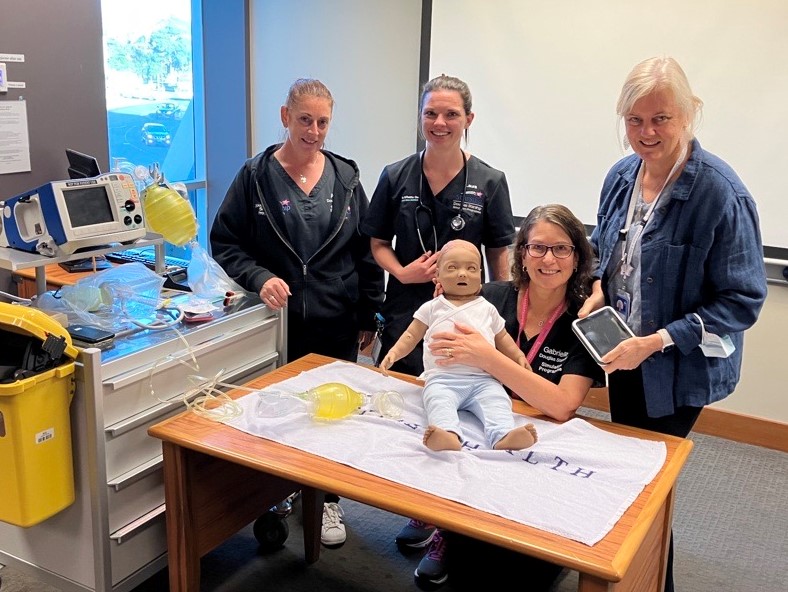Douglas Starship Simulation Programme
Technology advancements and innovation in healthcare come in thick in fast, and one way we keep pace at Starship is through the Douglas Simulation Programme.
The Douglas Starship Simulation Programme uses life-like manikins that can cry, cough, have seizures and show a variety of symptoms. It provides clinicians with realistic recreations of any imaginable medical emergency or important situation for training purposes.
Starship currently has six manikins or sim children, ranging from a premature baby through to a 14-year-old.
Philanthropy has made a major impact towards simulation
In 2018 an extraordinary gift of $9 million from Douglas Charitable Trust accelerated the future of simulation training at Starship.
This is the single biggest gift the Starship Foundation has ever received in its 30 year history. It enabled the team to grow and expand and now, not only do the team conduct training sessions at Starship hospital, they travel the length of New Zealand delivering sessions advancing simulation and sharing knowledge.
A new sim baby joins the Starship whānau
Thanks to two generous supporters, John Hitch and the Lion Foundation, a new and improved sim baby has been able to join the sim whānau.
It replaces an out-of-date sim baby to provide advanced and specialised training.
“It was a well-used sim baby and repair was rapidly becoming non-viable, so was no longer fit for purpose,” says Trish Wood, Douglas Simulation Operations Manager.
Simulation based education include emergency situations, intensive care environments, operating rooms, wards and community teams. It can also prepare a family to care for their child with complex needs before they leave hospital. It provides a safe practice environment before their child comes home.
“Our mission is to improve clinical care and health outcomes for tamariki and their whānau, and we want to say a huge thank you to the supporters of the Douglas Simulation Programme.
Thanks to you, clinicians are prepared, confident and equipped when it truly matters most. You’ve helped us expand our reach, advance research, develop innovative programmes, and provide a brighter future for the tamariki of Aotearoa,” Says Douglas Simulation Programme Director Jo Hegarty.

Douglas Simulation team members Alison Cartwright, Laura Newhouse, Gabrielle Nuthall and Trish Wood with the newest member of the sim whānau.
Your support goes towards technology and innovation like this
Thanks to the generosity of New Zealanders, the Starship Foundation has been able to help fund this important project. With your help, we can fund technology and innovation projects like this and improve health outcomes for our precious children.
